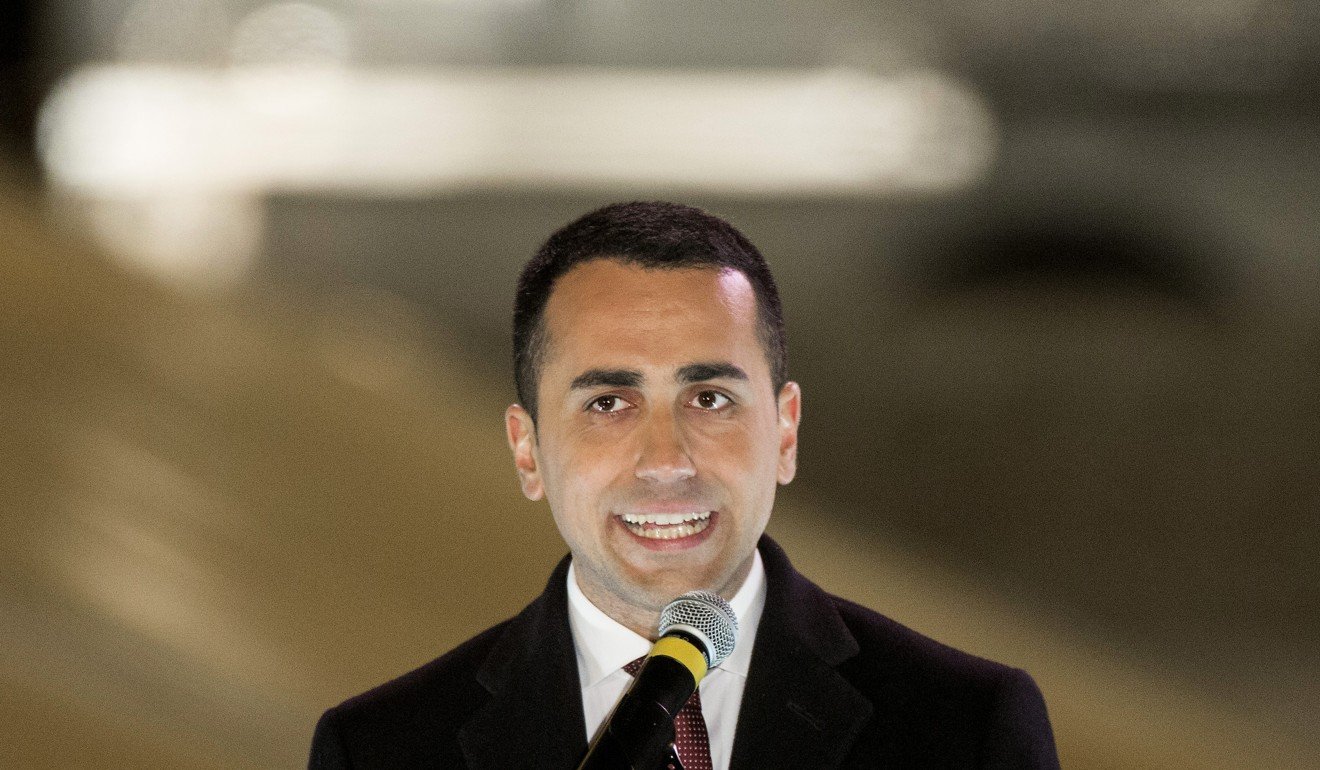
Berlusconi, populism or neither: who will claim Italy at the polls?
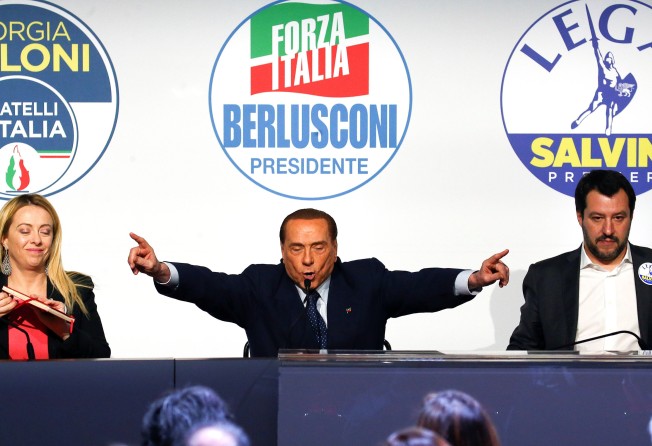
Europe’s appetite for populist movements will be tested on Sunday as Italians vote in a national election that threatens to plunge the euro zone’s third-largest economy into political chaos.
The results of the vote, which are expected to be announced early on Monday, could re-establish Silvio Berlusconi, the conservative former prime minister and billionaire forced out of office in 2011 under a cloud of scandal, as the dominant force in Italian politics.

They might also reveal a surge in support for Italy’s two main populist parties, the anti-establishment Five Star Movement and the far-right La Lega, which are both Eurosceptic, anti-free trade, pro-Kremlin and opposed to mandatory vaccinations.
La Lega, previously known as the Northern League, openly embraces an “Italians first” ideology while Five Star has focused on corruption, but their ascent in recent years from fringe parties to significant players in Italian politics has underscored the depth of anger within the electorate.
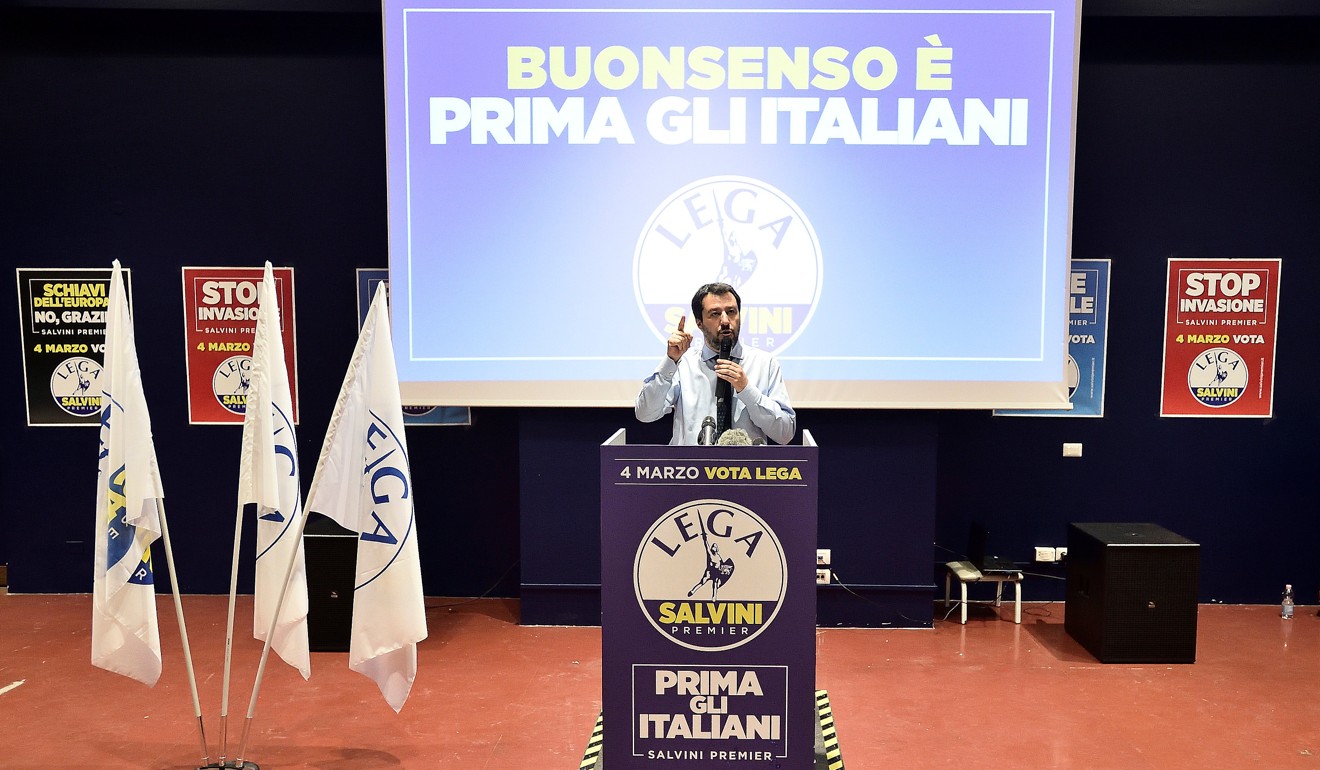
The centre-left, led by former prime minister Matteo Renzi, sought on Friday to make a last-ditch appeal for moderation, calling on the significant number of undecided voters – about 30 per cent – to “think carefully”.
The weak Italian economy, which has improved since the sovereign debt crisis but is still struggling under an unemployment rate of more than 11 per cent, and Italy’s role at the forefront of the migration crisis have emerged as the prevailing election issues.
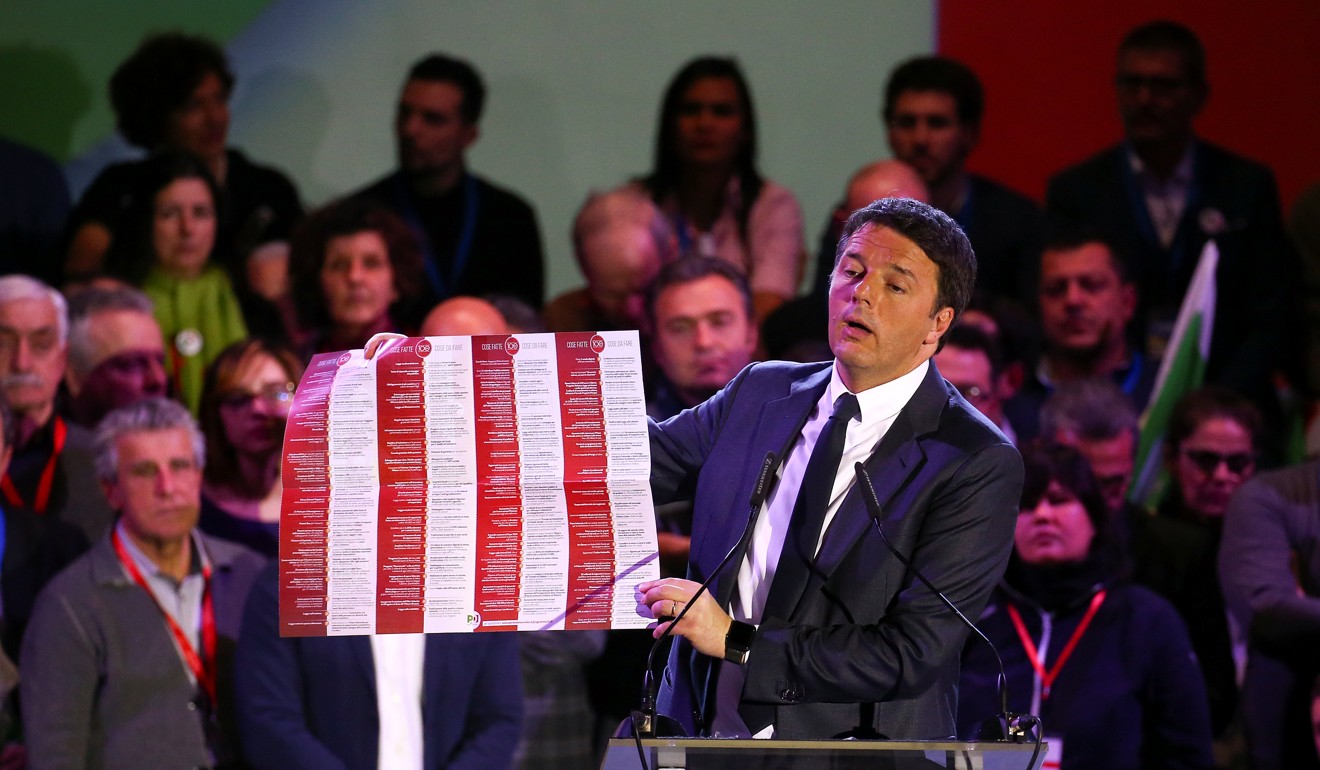
The campaigns have been marked by episodes of racism and political violence unseen in Italy since the 1970s, including the shooting of six migrants, an act described by the nationalist perpetrator as revenge for the murder of an Italian woman, allegedly by a migrant.
In his final public rally on Thursday in Rome’s Piazza di Pietra, Berlusconi – flanked by his main coalition partners, the far-right leaders Matteo Salvini and Giorgia Meloni – said he was “relatively satisfied” with how the campaign had gone and expressed sympathy for Renzi, who is expected to have a dismal showing on Sunday.
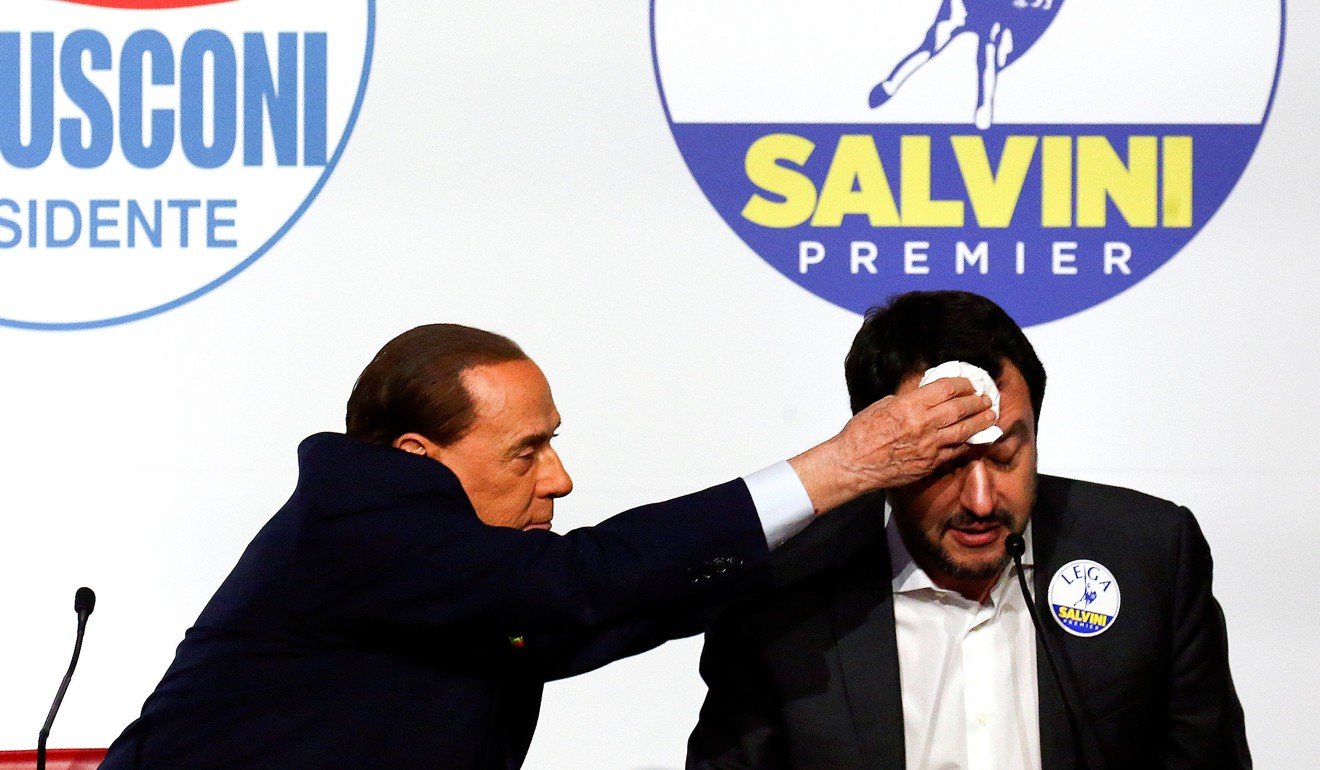
Raffaele Fitto, however, another coalition partner, was caught on an open microphone saying Five Star could sweep the south, a must-win region for Berlusconi.
According to the last opinion polls published before a media blackout two weeks ago, Berlusconi’s centre-right coalition has about 36 per cent of voter support, followed by about 28 per cent for the Five Star Movement and 24 per cent for Renzi’s Democratic Party.
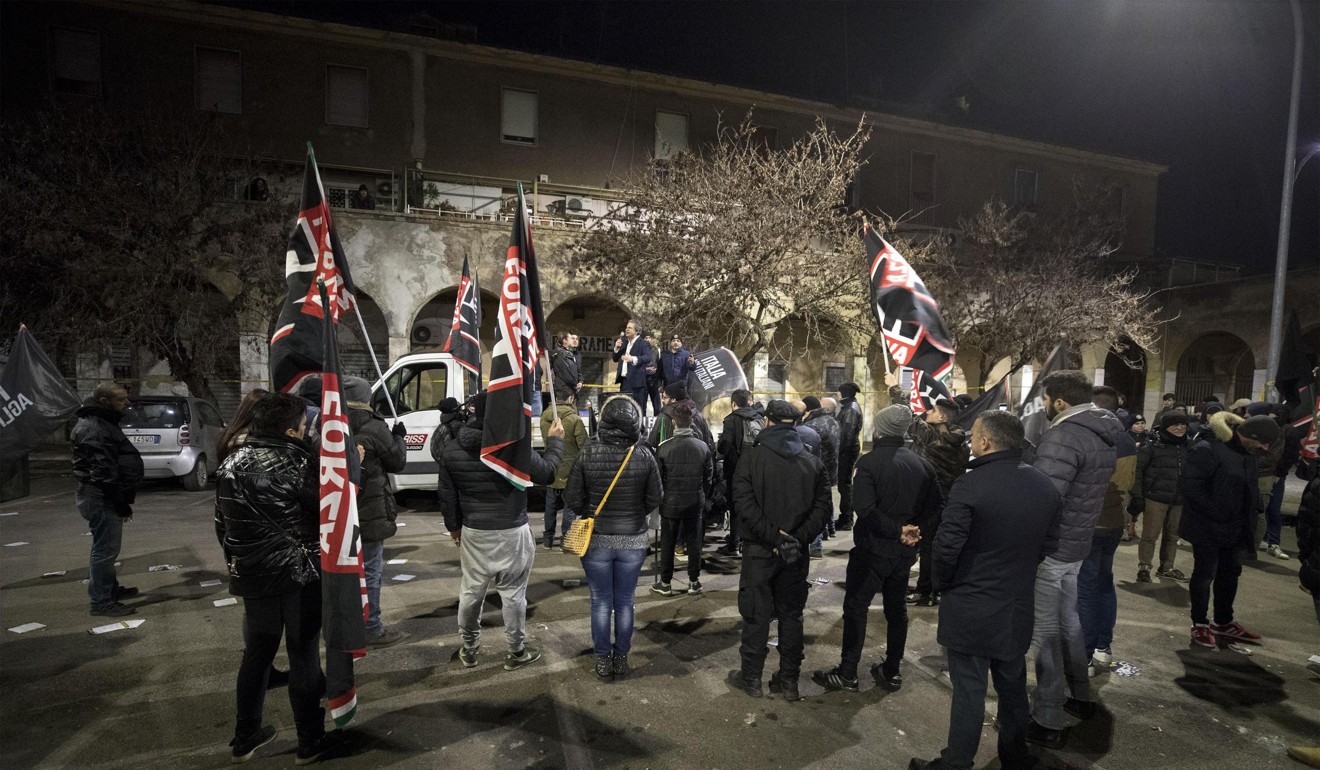
Under Italy’s new and complicated election law, none of the major parties or coalitions appear to have enough support to win an outright majority. Without a clear winner, the parties will have to try to cobble together a workable parliamentary majority, although each refused to work with one another in the days leading up to the vote.
Berlusconi, who is 81, is ineligible to serve as prime minister because of a previous tax conviction, but he promised this week to appoint Antonio Tajani, the president of the European parliament, to serve as premier if his Forza Italia party wins on Sunday.
The election has been bad news for hundreds of thousands of migrants in Italy, as the far-right parties have promised increasingly tough measures to deal with the crisis, including mass deportations.